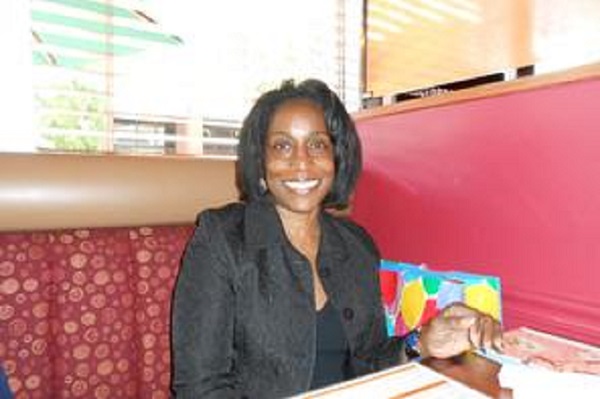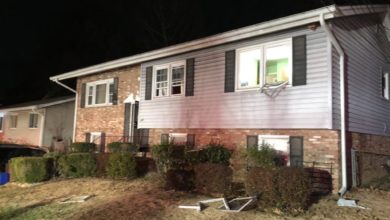Communication failures & confusion after Metro trains collide in DC
Radio transmissions show business as usual for DC's 911 center & Metro's rail ops center
Looking for a quality used fire truck? Selling one? Visit our sponsor Command Fire Apparatus
Radio transmissions from DC’s 911 center (above) and Metro (below) show it was business as usual at both agencies after two Metro trains collided in a tunnel early Monday morning. In other words, lack of competence and confusion were on display at DC’s Office of Unified Communications (OUC) and Metro’s Rail Operations Control Center (ROCC). This was a repeat performance of some of the communications failures from four-years-ago when a track fire left a woman dead and scores injured near the L’Enfant Plaza Station. The failures are consistent with numerous other incidents in the history of both ROCC and OUC.
The radio traffic shows the two agencies were unable to gather and share even the most basic information following the collision. The many failures to communicate effectively include:
- ROCC did not immediately ask key questions of its train operators to identify the severity of the emergency.
- OUC either did not immediately know or comprehend a train collision had occurred when they dispatched the first fire and EMS units to assist an injured person.
- Even after learning the incident involved a collision, OUC’s dispatchers failed to share that crucial information with the firefighters they had already dispatched to the Farragut West Metro Station
- Approximately 18 minutes after the collision OUC’s dispatchers still did not know with certainty where the crash occurred.
Both the Washington Metropolitan Area Transit Authority (WMATA) and the DC Government should count themselves lucky no passengers were aboard the trains this time and there were only two minor injuries. What’s certain from listening to ROCC and OUC dispatchers is the two centers still haven’t figured out how to effectively deal with large, or even small scale emergencies. The radio traffic shows ROCC remains incapable of gathering and sharing basic information in a timely manner when an emergency occurs. At the same time, OUC is unable to fulfill it’s core mission of coordinating a timely dispatch of fire and EMS while relaying crucial information to responding units.
Despite my harsh conclusions, there’s still a lot we don’t know about this emergency response. My judgments are based solely on radio traffic that’s in the public domain. I have no information from inside either agency. Admittedly, radio transmissions provide only a partial picture, but the ones I’m highlighting are unambiguous. It’s possible the picture is even worse than I’m painting, but likely not better.
To be fair, it’s important to note while it appears all of the radio traffic between ROCC and its trains on the impacted rail line are posted by OpenMHz, transmissions are missing from the OUC recordings. We also don’t know what information from OUC was displayed on the terminals mounted inside DC Fire & EMS Department apparatus. Also, while OpenMHz automatically logs the time of day with each radio transmission, we don’t know if its clocks on the ROCC and OUC transmissions are precisely synchronized or if they accurately reflect the exact time of day. We know they are at least close and help approximate elapsed time.
The times logged on OpenMHz indicate there was a delay of approximately 11-minutes after the collision occurred before the first DC Fire & EMS units were sent, and about 14-minutes before OUC dispatched the correct roster of equipment for a train crash inside a Metro tunnel. What we don’t know is precisely when ROCC alerted OUC and what information was relayed. Those conversations usually occur by phone between the two agencies. Without that information, it’s not possible to say on which end some of the many communications failures occurred.
With those caveats in mind, here’s what the radio transmissions tell us:
- After a report of a collision at about 12:51 a.m. Metro’s dispatcher didn’t immediately ask the two train operators if there were injuries, if there were a fire or other hazard, or to positively confirm there were no passengers on the trains. Those questions, along with verifying the location, should have been asked as soon as ROCC learned of the collision.
- It took almost three minutes before the Metro dispatcher asked one of the train operators if he was hurt and seven minutes to check on the well-being of the second operator. Both train operators reported injuries and that they needed medical help.
- It took approximately 13 minutes before Metro’s dispatcher asked those on the scene to confirm there were no passengers on either train.
- Even though it was immediately clear at ROCC this incident involved a collision between two trains, the first DC Fire & EMS units–Engine 23 and Medic 5–were dispatched to handle an injured person at the Farragut West Metro Station. There was no mention to the first firefighters and medics there was a collision on the tracks. That initial dispatch came about eleven-minutes after the collision was reported and about eight-minutes after ROCC first learned one of its train operators was injured. Again, the radio transmissions don’t indicate who’s at fault for this incomplete information, ROCC or OUC.
- Another three-minutes elapsed before OUC sent the correct assignment of a full Metro tunnel box alarm for a report of trains colliding. The correct dispatch occurred approximately 14-minutes after the collision was reported to ROCC. That dispatch from OUC sent five engine companies, two truck companies, two heavy rescue squads, three battalion chiefs, two medic units, three ambulances, an EMS supervisor and a safety officer to the Farragut West Metro Station.
- About three-minutes and thirty-seconds after the Metro box alarm dispatch and almost 18-minutes after the collision occurred, OUC was somehow still confused about the Metro station where the crash happened. At that point, OUC told the battalion chief in charge it appeared the primary Metro station for the emergency response should have been Foggy Bottom and not Farragut West. An OUC dispatcher told the chief new information from Metro indicated Farragut West was the secondary station. That information turned out to be incorrect. The crash occurred at Farragut West. We won’t know who’s responsible for this bad information until–and if–the conversations between OUC and ROCC are released.
- OUC never told Engine 23 that this call had been upgraded to a collision between two trains. Approximately four-minutes after the upgraded dispatch or seven-minutes after they were initially dispatched to Farragut West, Engine 23 called OUC from the train platform inside the Farragut West Station asking if the response had been upgraded or changed (Engine 23’s crew likely heard sirens, saw other firefighters showing up at Farragut West, or heard some of the additional radio transmissions). It appears OUC’s dispatchers somehow forgot they had already sent Engine 23 and Medic 5 to Farragut West. To add to this confusion, OUC then attempted to dispatch Engine 23 to the Foggy Bottom Metro Station, the wrong location for the collision.
There are a lot of similarities in this incident to the communications failures that occurred between the two agencies on January 15, 2015. On that day, there was a track fire in the tunnel outside the L’Enfant Plaza Metro Station. Despite alarms and smoke reports, ROCC sent two trains full of passengers toward the danger (ROCC had a long history of sending trains filled with passengers toward dangerous situations). It then took more than 15-minutes before ROCC notified OUC of the fire. Then another six-minutes passed before OUC dispatched the appropriate assignment for a fire on the tracks to the correct location after initially dispatching units to the wrong Metro station. While ROCC and OUC were wasting precious time, hundreds of passengers were choking in a smoke-filled tunnel. Passenger Carol Glover died during that delay and scores of people were treated for smoke inhalation. It’s clear from Monday’s incident few lessons about communicating with each other were learned by ROCC and OUC after Glover’s death. None of this should surprise anyone who has been paying attention.

In August, OUC took four-minutes to dispatch a house fire on Kennedy Street, NW where two-people were killed. The fire was called in by radio from a DC Police officer who spotted the burning home. Despite the dispatch taking four times the standard set by the National Fire Protection Association, OUC Director Karima Holmes repeatedly made dubious claims to reporters about the call being handled well. OUC has a long history of failing to meet even its own standard for processing emergency calls and Holmes, like OUC’s last director, makes nonsensical excuses.
I’ve long documented WMATA’s delays notifying DC area fire departments about emergencies and ROCC’s inability to relay critical information. This history of poor performance goes back to Metrorail’s first fatal crash on January 13,1982. After that collision Metro delayed notifying DCFD for four minutes. You can find a list of other incidents here and here.
The reason such problems continue to occur at both agencies is the failure by political leaders and the news media to comprehend the crucial role these communications centers play in the well-being of all who live in, work in or visit the Washington area. After Carol Glover’s death, I publicly and privately urged the DC City Council, Metro’s board, members of Congress and numerous reporters and news agencies to focus on what’s wrong at ROCC and OUC. Few paid attention. Little or no action has been taken by political leaders. No news organization has been willing to take a deep dive into either center and stay with this story. Monday morning, hours after the latest Metro collision, I publicly shared preliminary information on the delayed response with many in the news media. So far, no stories about the collision have mentioned the delayed response or other communications problems.
People die when workers at ROCC and OUC fail to properly do their jobs. Ask Carol Glover’s family. While no one died this time, Monday’s crash was an important warning. It’s telling us Metro’s ROCC and DC’s OUC still aren’t able to keep us safe. This should be a major embarrassment for anyone involved with or who cares about public safety in and around the capital of our country.
Both ROCC and OUC continue to prove they can’t handle a rail emergency. They are not prepared in the basic skills the jobs require. Significant improvements won’t occur until a dogged journalist finally immerses themselves into how a rail operations facility and a 911 center are supposed to operate and interact. Solutions won’t come until our political leaders demand change and follow through with action. Our safety will continue to be jeopardized until someone finally decides Carol Glover’s death will not be in vain.



